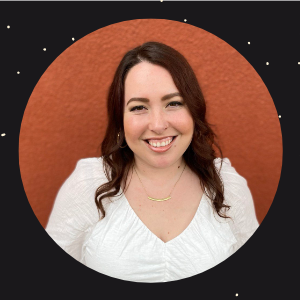Teaching about environmental issues through the social justice lens: Educator Spotlight on Alex Rosas
Wayfinder Society is for environmental educators who believe in the power of collective action. It is an online platform hosting a robust offering of classroom and teaching resources that makes it easy for educators to create a fun, dynamic, and engaging classroom and to inspire their students through environmental awareness and action. Every other month, we highlight an educator in our network.

Alex Rosas teaches an 8th grade Social Justice elective at Intellectual Virtues Academy.
I have been teaching at Intellectual Virtues Academy, a charter middle school in Long Beach, CA for 3 years. Before teaching I worked at a non-profit focusing on supporting families and veterans experiencing homelessness and providing affordable and supportive housing. I also have a masters in education with a social justice focus and the way that I approach teaching is through this lens.
I have the privilege of teaching a social justice elective to 8th graders at IVA and I am so grateful for the support that Anika and Algalita have provided me. In teaching a unit about environmental justice, I wanted to cover a wide range of topics as well as highlight the disparities across race, class, nationality, etc. within environmental issues. Students explore questions such as “What are the ways in which environmental inequalities affect vulnerable communities?” and “How can young people help bring about environmental justice in their communities?”
During the semester, students are also tasked with completing a semester project on social issues of their choice and many students explore environmental issues. As part of the project, students research local nonprofits and organizations that are making a difference in the community and reach out to them to ask if they would help answer a few questions for the class. This is how I invited Anika to come and speak with the class about the amazing work Algalita is doing. Students were able to formulate questions and learn more about plastic pollution and how plastic is affecting our lives. Students are already very knowledgeable about the realities of environmental inequalities and concerns, but many of them feel a renewed sense of activism and urgency after hearing from Anika about how far reaching plastics are in our food, fashion, everyday use items, and even in our bodies.
I think these sort of opportunities for students to learn how to practically get involved in the fight for protecting our environment is so important. They not only learn about practical solutions and what the main issues really are, but they also get to connect with the work at a personal level and are challenged to think about how they can personally get involved.
I think the longer I teach, the more I realize the need for students to be involved in hands-on and interactive learning where they are able to connect learning about the environment with their personal lives. Right now this is through the projects the students work on in my class, being able to complete their own research, connect art and activism, and invite guest speakers to be able to learn from people working directly with these issues. In the future, my hope is to be able to take this a step further and incorporate more field trips and hands-on activities which I think will create an even larger sense of urgency and provide even more practical tools for students to have access to. I am so grateful for the access that Anika and Algalita have provided my students already and for this amazing partnership in the fight for our environment.
– Alex
Thank you Alex for sharing your insights and experience with engaging students in these important topics!
